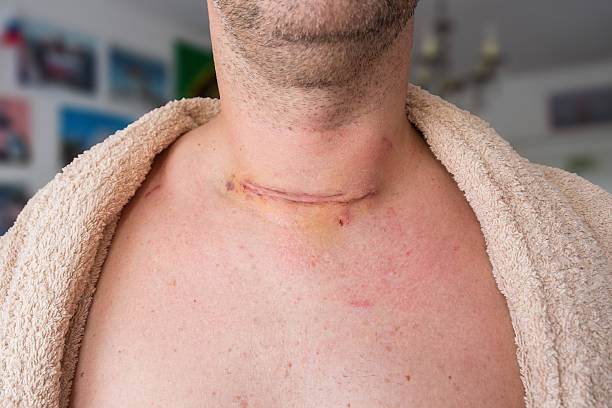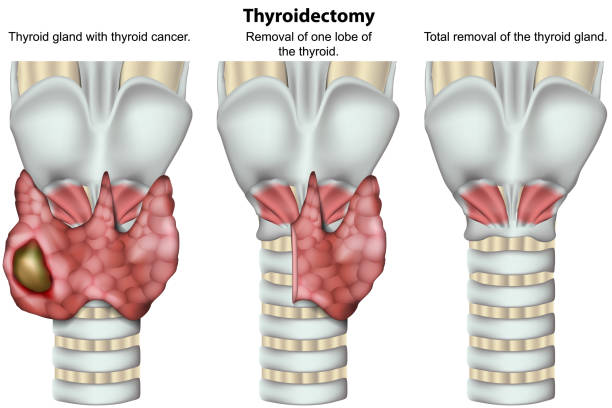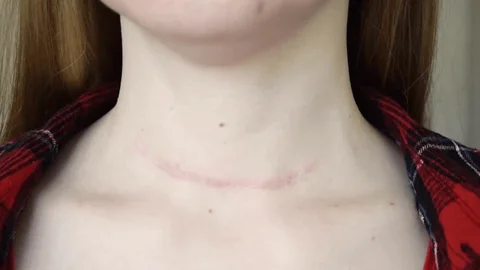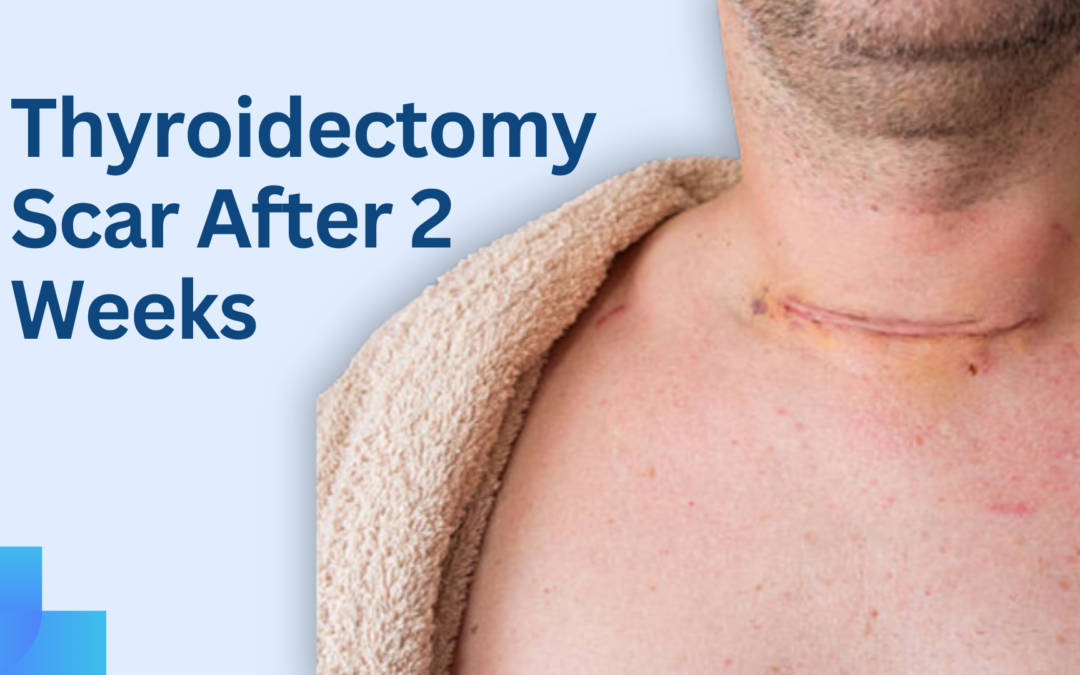Thyroidectomy is a standard surgical procedure for treating thyroid cancer or other thyroid-related conditions. During the surgery, part or all of the thyroid gland is removed, often resulting in a visible scar on the neck. Following the procedure, patients may have concerns about the appearance and healing of their thyroidectomy scar after 2 weeks. Understanding what to expect during this healing phase can help alleviate anxiety and promote effective recovery.

“Thyroidectomy scars can vary based on individual healing and surgical techniques,” notes Dr. Devendra Chaukar, an eminent head and neck oncologist in Mumbai, India. “Proper care can significantly improve their appearance over time.”
With over 20 years of experience treating head and neck cancers, Dr. Chaukar specializes in thyroidectomy procedures. He ensures patients receive personalized treatment for successful outcomes and the best post-surgical care for optimal recovery.
Ensure your thyroidectomy scar heals smoothly. Consult a specialist today for expert advice on proper scar care.
Two weeks after thyroidectomy, patients typically notice a red or pink linear scar at the incision site. This scar is a natural part of the healing process as the body repairs the tissue. Some tightness in the neck area is also common due to the surgical manipulation of skin and muscles during the procedure.

By the two-week mark, the scar may appear raised and firm to the touch. Although this can cause concern, it’s a normal part of recovery. The body continues to produce collagen, which strengthens the tissue but initially may result in a thickened scar.
Can Thyroidectomy Scars Fade After 2 Years?

Thyroidectomy scars often fade significantly over time. However, the extent of fading can vary based on skin type, the body’s healing ability, and adherence to post-operative care. By two years post-surgery, most scars become considerably less visible and may blend in with the natural skin tone. During this period, the body continues to heal the scar tissue. Many patients see substantial improvement in texture and colour.
Dr. Devendra Chaukar, a recognized surgical oncologist in Mumbai, advises, “Patients need to be patient with their healing process. Scars, especially on the neck, take time to mature fully. With the right care, they can become barely noticeable.” If your scar is still highly visible or causing discomfort after two years, further medical treatments can be explored to minimize its appearance.
Now, let’s discuss some effective ways to prevent scar worsening.
How to Minimize Thyroidectomy Scar After 2 Weeks
While jaw pain after parotidectomy is common and often resolves with time, there are potential complications that can arise if the pain persists or is linked to underlying issues:
Facial nerve weakness or paralysis
Proper hygiene is crucial to prevent infection, which can worsen scarring.
Keep the area moisturized:
Use silicone-based gels to keep the scar hydrated. Moisturized skin heals better and can help minimize scarring.
Avoid sun exposure:
The sun can darken the scar, making it more noticeable. Use sunscreen or cover the scar when outdoors.
Apply scar creams or ointments:
Products containing ingredients like vitamin E and aloe vera promote healing.
Silicone sheets:
These can be worn over the scar to flatten and soften the tissue.
Gentle massage:
Once the wound has fully closed, gently massaging the scar tissue can improve circulation and promote healing.
Avoid straining the neck:
Physical strain can stretch the scar, causing it to widen. Be mindful of your movements in the weeks following surgery.
Stay hydrated:
Drinking plenty of water aids in skin health and recovery.
Looking for ways to reduce your thyroidectomy scar? Speak to a professional today for personalized scar care options.
Do you know when it’s essential to seek professional help? Here’s when you should act.
When to Seek Medical Advice

Excessive Redness or Swelling:
If your scar becomes overly red or swollen, it could be a sign of infection.
Discharge or Unusual Odor:
Any discharge from the scar should be reported to the doctor immediately.
Persistent Pain:
While some discomfort is normal, continuous pain around the scar can be concerning.
Itching and Irritation:
Severe itching or irritation could mean the scar is not healing properly.
Keloid or Hypertrophic Scarring:
These are raised, thick scars that may require medical treatment to resolve.
Slow Healing:
If your scar is not healing as expected, it’s essential to consult an expert.
Ready to take the next step? Book an appointment with a specialist now.
Conclusion
Thyroidectomy scars, though initially concerning, can heal significantly with proper care. Dr. Devendra Chaukar, a leading head and neck oncologist in India, has guided countless patients through thyroid cancer treatment in Mumbai.
His expertise ensures both the surgical procedure and post-operative care are handled with the highest level of professionalism. For those concerned about their thyroidectomy scar, following care recommendations and consulting a specialist when necessary is essential.
Have more questions about thyroidectomy scars? Let’s answer some common queries in the FAQs section below.
Frequently Asked Questions:
How long does it take for a thyroid scar to fade?
Most scars fade significantly 6 months after thyroidectomy, with further fading occurring over 1 to 2 years.
Is tightness in the neck after thyroidectomy normal?
Neck tightness is common after surgery and typically improves with time and gentle movement exercises.
Is a thyroidectomy scar permanent?
A thyroidectomy scar is permanent. However, it usually becomes less visible after a year with proper care.
Will the thyroidectomy scar affect my ability to speak?
The scar won’t affect speech, but temporary hoarseness can occur due to the proximity to the vocal cords.
Can thyroidectomy scars become infected?
If not cared for properly, the scar can become infected. Signs include redness, swelling, and pus.
Disclaimer: This page is for informational purposes and not for promotional use.

Dr Devendra Chaukar
Dr. Devendra Chaukar is a renowned Head and Neck Surgical Oncologist with over 20 years of experience in treating complex head and neck cancers. A graduate of Tata Memorial Hospital, Mumbai, he specializes in minimally invasive surgeries and organ-preserving treatments. Dr. Chaukar is deeply committed to patient-centric care and advancing cancer treatment through research and education.


Recent Comments